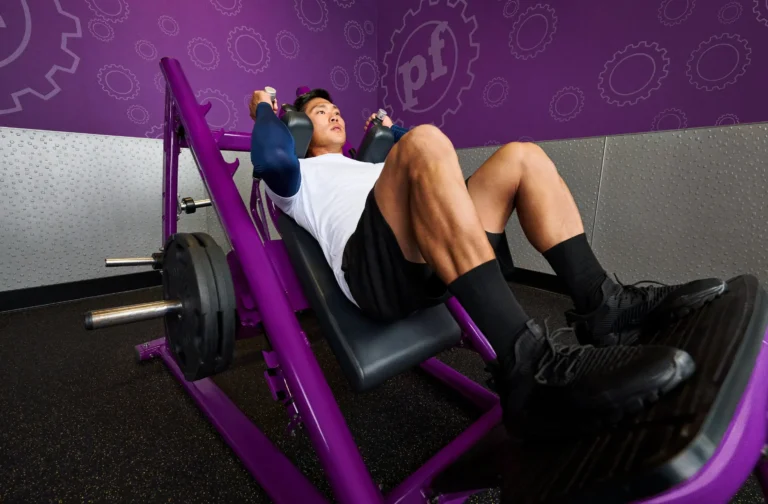Orthopedics plays a significant role in addressing joint dysfunction and enhancing mobility. Many individuals experience joint pain or limited movement due to aging, injury, or chronic conditions. Orthopedic care focuses on diagnosing and treating disorders that affect bones, joints, ligaments, and muscles, providing options to improve function and daily life.
What Are the Most Common Causes of Joint Dysfunction?
Joint dysfunction can occur for a variety of reasons, affecting mobility and overall quality of life. Understanding the common causes can help you manage or prevent these issues effectively. Here are the main factors contributing to joint dysfunction:

● Arthritis: Conditions like osteoarthritis and rheumatoid arthritis are leading causes of joint dysfunction. They result in joint pain, stiffness, and swelling, often making everyday tasks more difficult.
● Overuse Injuries: Repetitive movements, such as typing or running, can strain joints over time, leading to discomfort and reduced range of motion.
● Accidents or Trauma: Injuries from accidents can damage bones, ligaments, or cartilage within a joint, further impacting its ability to function properly.
● Aging: Natural wear and tear on joints as we age significantly contributes to joint dysfunction, reducing flexibility and strength over time.
● Weight Gain and Inactivity: Excess weight places additional stress on joints, particularly in weight-bearing areas like the hips and knees. Lack of exercise can also weaken muscles that support joint health, worsening the problem.
By identifying these factors, you can take steps to manage joint health and improve mobility. Whether it’s maintaining a healthy weight, staying active, or promptly addressing injuries, proactive measures can significantly reduce joint dysfunction.
What Non-Surgical Treatments Can Improve Joint Function?
Orthopedics care often begins with non-surgical treatments to address joint dysfunction. Physical therapy is frequently recommended to strengthen muscles around the joint and improve flexibility. A structured therapy program can help individuals regain movement and reduce discomfort over time.
Assistive devices like braces or orthotics may support joint alignment and movement. Medications, such as anti-inflammatory drugs, are another option to manage symptoms effectively. Lifestyle modifications, including weight management and regular exercise, can also contribute to better joint health.
How Do Orthopedic Treatments Enhance Mobility and Daily Life?
Orthopedic treatments target the root causes of joint dysfunction to improve mobility and overall function. By addressing specific issues such as inflammation or instability, these treatments can make daily tasks easier to perform. Consistent care can make walking, climbing stairs, or engaging in hobbies less taxing.
Physical therapy and strength-building exercises help increase stability, which reduces the risk of further injury. Treatments also aim to delay the progression of joint-related conditions. Early interventions and maintenance programs can have lasting effects on preserving mobility and activity levels.
Consult a Provider in Orthopedics
If joint dysfunction affects your daily activities, an orthopedic provider can evaluate your needs and recommend a tailored treatment plan. Their expertise in musculoskeletal health offers practical solutions to improve joint function and mobility. Schedule a consultation with an orthopedic provider to explore the best options for maintaining an active lifestyle and enhancing your overall quality of life.

Does Planet Fitness Have Weight Scales – Here’s What You Need to Know!
If you’re on a fitness journey and thinking about joining Planet Fitness, you might be wondering: “Does Planet Fitness have weight scales?” Keeping track of your weight can be an important part of reaching your fitness goals, whether you’re trying to lose weight, gain muscle, or maintain your current shape. But surprisingly, many first-time visitors… Read More »Does Planet Fitness Have Weight Scales – Here’s What You Need to Know!

Does La Fitness Provide Towels – Everything You Need to Know Before Hitting the Gym!
When choosing a gym, many people focus on equipment, classes, and pricing—but one often-overlooked factor is towel service. Whether you’re wiping off sweat during a workout, drying off after a swim, or hitting the showers, towels are essential to your fitness routine. So, a common question that arises is: Does LA Fitness provide towels? Let’s… Read More »Does La Fitness Provide Towels – Everything You Need to Know Before Hitting the Gym!

Does 24 Hour Fitness Have A Swimming Pool – Everything You Need to Know!
If you’re exploring gym memberships and love swimming or water workouts, you’re probably wondering: “Does 24 Hour Fitness have a swimming pool?” The short answer is: Yes, many 24 Hour Fitness clubs have swimming pools, but not all. Whether you’re a lap swimmer, water aerobics fan, or just enjoy relaxing in the water, understanding which… Read More »Does 24 Hour Fitness Have A Swimming Pool – Everything You Need to Know!

Did Planet Fitness Donate To Trump – A Deep Dive into Politics, Perception & Public Reaction!
In an era where politics and brand identity often collide, consumers are becoming increasingly interested in the political affiliations and contributions of the companies they support. One question that’s drawn attention in recent years is: “Did Planet Fitness donate to Donald Trump?” Whether you’re a Planet Fitness member, a political enthusiast, or someone simply trying… Read More »Did Planet Fitness Donate To Trump – A Deep Dive into Politics, Perception & Public Reaction!

Can You Wear Crocs To Planet Fitness – A Complete Guide!
When heading to the gym, especially a popular one like Planet Fitness, comfort might be on your mind—but so should safety and gym policy. A surprisingly common question among gym-goers is: “Can you wear Crocs to Planet Fitness?” The answer isn’t just a simple yes or no—it’s about safety, support, and gym rules. Let’s explore… Read More »Can You Wear Crocs To Planet Fitness – A Complete Guide!

Salsarita’s Nutrition – A Guide to Making Healthier Choices!
(Salsarita’s Nutrition) provides customizable Mexican meals with proteins, bases, toppings, offering nutritious options for balanced choices. Salsarita’s offers customizable Mexican meals like burritos, tacos, and bowls tailored to your preferences. With a variety of proteins, bases, and toppings, it’s easy to create flavorful, nutritious dishes that fit your dietary needs. Overview of Salsarita’s Menu: Salsarita’s… Read More »Salsarita’s Nutrition – A Guide to Making Healthier Choices!